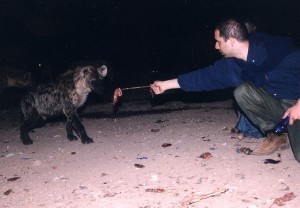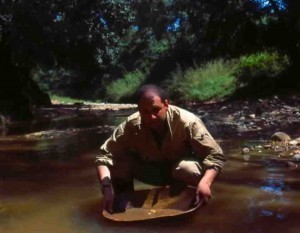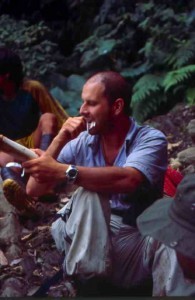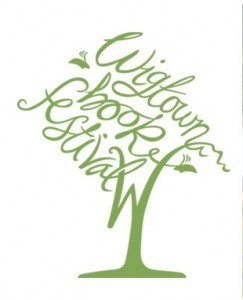Tahir Shah's Blog, page 6
November 1, 2012
In need of adventure? Try Explorers Connect
 Explorers Connect is a website with a mission to make adventure more accessible. It was founded by Belinda Kirk, who has worked in the adventure industry for most of her life, with the intent to help others realise their adventurous dreams. If you’ve ever dreamed of adventure, this is the website to join. Whether you want to join an adventure expedition or grow your adventure career, this website is full of all the information, contacts and opportunities you need to plan your next (or first?) adventure.
Explorers Connect is a website with a mission to make adventure more accessible. It was founded by Belinda Kirk, who has worked in the adventure industry for most of her life, with the intent to help others realise their adventurous dreams. If you’ve ever dreamed of adventure, this is the website to join. Whether you want to join an adventure expedition or grow your adventure career, this website is full of all the information, contacts and opportunities you need to plan your next (or first?) adventure.
Some of their resources:
Jobs pages, where you can find both expedition leaders and job vacancies for outdoor professionals.
Opportunities, to find team mates for expeditions
Local groups, where people can meet up to hear an adventure talk or to find like-minded people in the adventure industry
Some of their upcoming events:
Surfing weekend in Croyde
Survival weekend
October 31, 2012
A Price on Their Heads
 Ever since my aunt lifted me up to a glass case at the back of Oxford’s Pitt Rivers Museum, at the impressionable age of eight, I have been hooked on shrunken heads.
Ever since my aunt lifted me up to a glass case at the back of Oxford’s Pitt Rivers Museum, at the impressionable age of eight, I have been hooked on shrunken heads.
Like so many schoolboys before me, my lower jaw dropped as I gazed in awe at the array of miniature human heads, correctly known as tsantsas. There was something wholly captivating about their gnarled features, the sewn lips, little hollow necks and manes of jet black hair.
I longed to learn the secret processes, known to a tribe deep in the South American jungle, which enabled decapitated human heads to be shrunk to the size of a grapefruit.
Despite an ongoing debate about whether museums should harbour human remains, the Pitt Rivers Museum still holds five, and the British Museum has at least ten. Interest in the gruesome exhibits remains strong. A roaring private trade in the illicit handicraft has developed, with heads being snapped up by wealthy collectors, many from the Far East and Japan.
The genuine article comes from the Upper Amazon, a region on the Pastaza river between Peru and Ecuador.
To continue reading, please see my article at Explorers Connect.
October 30, 2012
In Search of King Solomon’s Mines
 An inky hand-drawn map was hanging on the back wall of Ali Baba’s tourist shop, deep in the maze of Jerusalem’s Old City.
An inky hand-drawn map was hanging on the back wall of Ali Baba’s tourist shop, deep in the maze of Jerusalem’s Old City.
Little more than a sketch, and smudged by a clumsy hand, the map showed a river and mountains, a desert, a cave, and what looked like a trail between them. At the end of the trail was an oversized ‘X’.
‘Is it a treasure map?’ I asked. Ali Baba, an old man with a pot-belly, glanced up from his newspaper. ‘It shows the way to the fabled gold mines of Suleiman,’ he said. After an hour of negotiation, I slid a wad of Israeli shekels across the counter and left with the map. Anyone else may have scoffed at the object, or laughed at my gullibility. After all, Jerusalem’s Old City is cluttered with Holy Land bric-a-brac. I had a feeling from the start that Ali Baba’s map was suspect, for it had no place names or co-ordinates.
But to me it symbolised a family obsession.
To continue reading, see my full article at Explorers Connect.
October 29, 2012
Tahir Shah’s top ten do’s & don’ts for expeditions
 10 Key Things on a Jungle Expedition
10 Key Things on a Jungle Expedition
1. Lead from the front. Never ever ever ever expect someone to do something that you’re not willing to do yourself.
2. Make sure that you have plenty of food — good food — and that the team eat before you do.
3. Think ahead. Never march on too late into the afternoon without taking into account that a storm could sweep in. So, build a camp when it’s not raining, even if you haven’t marched very far on a given day.
For more of my top tips on how to manage an expedition, please see my article over at Explorers Connect.
October 22, 2012
Event: December 4th, 2012 in Wimbledon
October 8, 2012
Wigtown
 This last week I made the trek from Casablanca to Wigtown, in Scotland, for the literary festival there. Anyone who knows my views on writing and the world of books will be well aware of my aversion to Lit Fests, as they’re known in the trade.
This last week I made the trek from Casablanca to Wigtown, in Scotland, for the literary festival there. Anyone who knows my views on writing and the world of books will be well aware of my aversion to Lit Fests, as they’re known in the trade.
I can’t stand them.
This is because I don’t believe authors should be congratulating each other or being applauded by audiences. They should be writing instead. I believe strongly that the moment an author puts down his pen, or pushes back from his keyboard, he’s not a writer, but a bum.
If there is an exception in the Lit Fest calendar, it’s Wigtown. A gloriously eccentric backwater of delight, it’s one of those places that captures the imagination and the heart. The longer you spend there, against a backdrop of grey granite stone and autumnal skies, the more you come to understand its gentle perfection.
Wigtown is one of those destinations that calms the soul, and reminds jittery authors that they are a fragment of a grand tradition. It’s the self-styled Scottish town of books. And what could be better than a remote corner of the British Isles dedicated to leather-bound editions, Beano annuals, and forgotten volumes on sheep-shearing and cooking with tripe?
Much of my time at Wigtown was spent caressing the cases of leather-bound books at The Bookshop, owned by the inimitable Shaun Bythell. Words can hardly describe the jewels on offer, from eighteenth collections of Highland poetry, to volumes in French devoted to early rambles through the Orient.
Down on the margins of the water there’s a stone to which martyrs were once trussed, to allow the incoming tide to drown them. And, through the nearby forest of oak saplings and elm there are waterfalls, where the River Cree tumbles out towards the sea.
A handful of days later, I have found myself back in Casablanca, the shantytown brooding around us, murmurs of demolitions back on communal tongues. I’ve been sitting here wishing… wishing I could click my heals together and be back in Wigtown, running my fingers over the speckled calf bindings once again.
October 7, 2012
Wisdom of Wigtown
The people at Wigtown are generating a book of the wisdom of Wigtown during this year’s Wigtown Book Festival, and they asked the following questions:
1. Is there something that someone told you early in life that proved to be useful?
Yes: My father told me never ever ever listen to anyone who tried to hold me back, and to think for myself.
2. What do you wish you knew when you were 18?
I wish I had known how important it is to be original and not try to ape others.
3. What word do you repeat to yourself when the going gets tough? Or what word sums you up?
The word I repeat to myself over is over is: FORWARD!
4. How would you finish the sentence “It’s never too late to…”‘
“…write a book that will change the world.”
September 28, 2012
Boiled Frog
I was recently asked for an interview, ‘What are your thoughts on the way society is changing?’
My response:
We are urbanising at the same time as technologising. It’s happening everywhere at the same time.
Where I am living, in Casablanca, the city grows each day as more and more people come from the countryside and try to live here in the city. Of course, most of them can’t get jobs, and once they have seen the bright lights of the city, they can’t go back to their villages.
The world is changing, but most people aren’t seeing it happen. They’re not programmed to notice the change.
It’s very similar to the BOILED FROG idea:
If a frog is placed in a pot of cold water, water that is heated very slowly, the frog won’t notice the increasing temperature, and it will be boiled alive.
Our society is very similar to the boiled frog. We are going to be ‘boiled alive’ — as the world in which we live changes. We have been developed as a species for the savannah… to react to an instant threat, but not to a gradual one.
The only way to survive is to alter the way we notice change, and the way we react to it.
September 24, 2012
The Way of Things to Come
I was recently asked for an interview, ‘Can you comment on the future of technology, and the way it’s effecting the book business?’
My response:
We live in a fascinating time. Technology is changing our lives, and will continue to do so more and more. That’s a certainty. And, elements of culture that we have known and appreciated over centuries will change, or even disappear. That’s the story of human culture.
I think it’s GREAT that the world of books is going through a radical change. The book business has been very restricted for too long: controlled by too few people in publishing firms. For the first time it’s easily possible for anyone to publish a book — either as a Print on Demand (e.g. using Lulu), and/or as an eBook. People can write blogs as well, which I think are a fantastic way of communicating thoughts and ideas.
And, eBooks are going to take a larger and larger share of the market. I think eBooks are a very good way to get people reading. And they make work accessible, instantly.
That can only be a good thing.
I have been extremely critical in recent months about the low quality of production of paperbacks and even in standard hardback books — and I think the typical low quality pulp paperbacks will be replaced by eBooks in coming years.
And, thank god for that.
I chose to publish TIMBUCTOO myself because I hated the idea of a publisher reducing it to just another pathetic junk paperback format. I believe in beautiful books, as objects of inspiration and beauty in their own right… and I am certain that we will be left with high quality books and with eBooks. The paperbacks with smeary type, which fall to pieces in your hands, will be resigned to the dustbin of culture — where they belong.
It’s true that a lot of authors are panicking because they think they will be out of work — fearing the end of books. I think that’s nonsense because authors are storytellers and human society needs storytellers — whether it is to develop material for a video game or for a movie, or a novel. These are exciting times, and are times to be embraced — not feared.
September 21, 2012
Wigtown Book Festival
 Will you be at this year’s Wigtown Book Festival? I’ll be speaking about Timbuctoo on Monday 01 October 2012 at 15:00 pm. Tickets can be purchased online.
Will you be at this year’s Wigtown Book Festival? I’ll be speaking about Timbuctoo on Monday 01 October 2012 at 15:00 pm. Tickets can be purchased online.
For those of you who are not familiar with Wigtown, it is a small town with a population of about 1,000 in southwest Scotland. In 1997 it was named the country’s National Book Town, due to the fact that it held over twenty book-related businesses, including bookshops and publishers.




